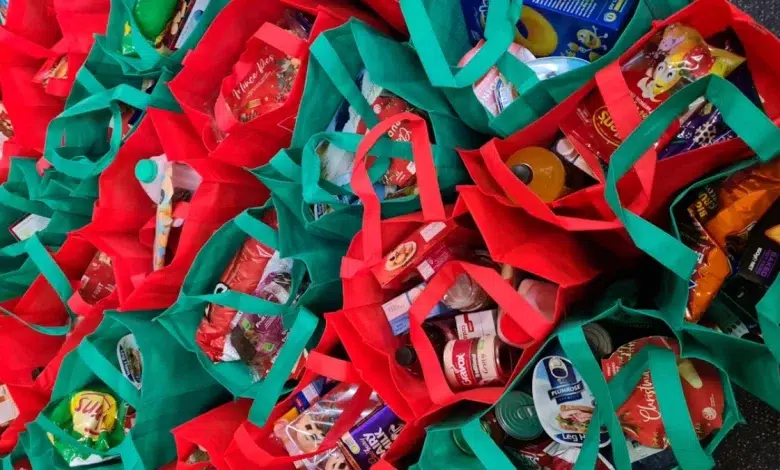Bulk vs. Weekly Shopping: Which Saves You More in Gauteng?

Gauteng remains South Africa’s most expensive province for groceries in 2025, with Johannesburg topping the list as the priciest city. The average cost of a basic household food basket in Johannesburg reached over R5,500 early this year, reflecting ongoing inflation, rising fuel costs, and supply chain challenges. In this context, families are seeking the best shopping strategies to stretch their budgets. Two common approaches are bulk shopping versus weekly shopping. This article explores which method can save you more money in Gauteng.

INTERESTING READ: Price Check: Food Lover’s Market vs. Pick n Pay vs. Woolies
Understanding Grocery Costs in Gauteng
Food inflation in Gauteng has been steady, with prices increasing by about 2% year-on-year. Factors such as fuel price hikes, supply chain disruptions, and retailer markups contribute to rising costs. For example, in March 2025, a basket of nine staple items cost an average of R422 at major retailers, with prices varying significantly between stores like Makro, Checkers, Woolworths, and Pick n Pay.
Bulk Shopping: Pros and Cons
Advantages:
- Lower unit prices: Buying staples such as rice, maize meal, cooking oil, and frozen proteins in bulk often reduces the cost per unit. For example, purchasing 2 kg of chicken or large bags of rice can be cheaper than smaller weekly portions.
- Fewer trips: Shopping less frequently saves on transport costs, which is significant given Gauteng’s rising fuel prices.
- Stockpiling essentials: Bulk buying ensures you have a supply of non-perishable items, reducing the risk of last-minute expensive purchases.
Disadvantages:
- Upfront costs: Bulk shopping requires a larger initial outlay, which may strain monthly budgets.
- Storage needs: Adequate space is necessary to store bulk items safely.
- Risk of waste: Perishable goods bought in bulk may spoil if not consumed timely.
ALSO READ: R1000 at Shoprite vs Boxer: A Comparison
Weekly Shopping: Pros and Cons
Advantages:
- Better flexibility: Weekly shopping allows adapting purchases based on current needs, promotions, and seasonal availability.
- Less waste: Buying smaller quantities reduces the risk of food spoilage.
- Cash flow management: Smaller, regular purchases may be easier for families managing tight budgets.
Disadvantages:
- Higher prices: Smaller quantities often cost more per unit than bulk items.
- More frequent transport costs: Weekly trips to the store increase fuel and time expenses.
- Impulse buying: Frequent shopping can lead to unplanned purchases, increasing overall costs.
CHECK OUT: How Much Can R1000 Buy at Checkers vs Pick n Pay in 2025? An Informative Comparison for Shoppers
Which Saves More in Gauteng?
Research and price comparisons suggest that bulk shopping saves money on staple and non-perishable items, especially when purchased from discount retailers like Makro or Food Lover’s Market, which offer lower prices compared to premium stores such as Woolworths or Pick n Pay.
However, weekly shopping can be more economical for fresh produce and perishable goods, allowing shoppers to buy seasonally and avoid waste. Additionally, weekly trips enable shoppers to take advantage of special promotions and discounts that may not apply to bulk purchases.
Practical Tips for Combining Both Methods
- Buy staples in bulk: Items like rice, maize meal, cooking oil, sugar, and frozen proteins should be purchased in larger quantities to benefit from lower prices.
- Shop fresh weekly: Fruits, vegetables, dairy, and bakery items are best bought weekly to ensure freshness and reduce waste.
- Compare prices: Use retailer loyalty programs and compare prices regularly between stores such as Makro, Checkers, Pick n Pay, and Woolworths.
- Plan meals: Meal planning helps avoid impulse buys and ensures efficient use of bulk items.
- Watch for promotions: Weekly shopping allows capitalising on discounts, especially for fresh produce and household essentials.
Smart Budgeting
For families in Gauteng facing high grocery prices, a hybrid approach combining bulk shopping for staples with weekly purchases of fresh items offers the best balance between savings and freshness. Bulk buying reduces unit costs and transport expenses, while weekly shopping minimises waste and allows flexibility. Careful planning and price comparison remain key to managing grocery budgets effectively in 2025.



